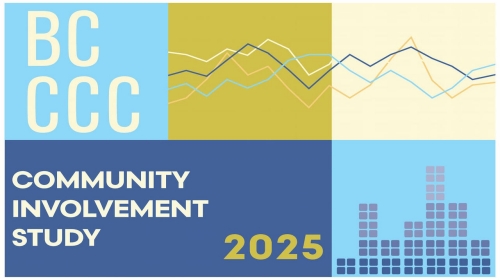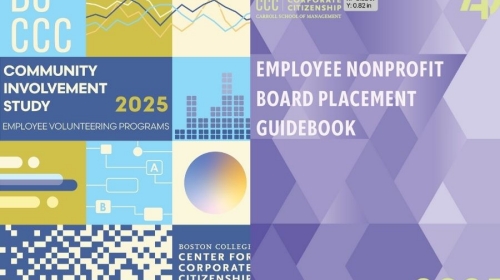WEBINAR: This webinar explores how to measure and communicate your organization's social impact with proven frameworks and strategies that matter to stakeholders.
Prioritizing Employee Mental Health

Jobs are good for mental health.[i] They offer—in addition to stability and economic security—a sense of purpose and community. Even in the best of times, stress affects mental health, and can exacerbate mental disorders, such as depression, anxiety, and/or addiction. The WHO estimates that the global economy loses $1 trillion every year in productivity losses resulting from anxiety and depression—two of the most common mental health disorders.[ii]
The majority of Americans surveyed in a recent Gallup poll report that—while they believe they’ll be able to withstand the physical effects of the physical distancing necessitated by the COVID-19 pandemic—they don’t expect their mental health will hold out as long.[iii] This is especially the case for younger Americans (ages 18-44), women, and parents of young children.
As corporate citizenship professionals, your efforts can mitigate some of the stress coming from our current isolation. Employee volunteer programs, for example, can reinforce team cohesion, amplify the communication of your company’s purpose, and provide opportunities for employees to develop new skills and gain confidence.
While the more traditional CSR methods of engaging employees and improving morale may be less available to us for the time being, there is still much that corporate citizenship practitioners can do to support employee mental health:
1. Ensure your employees feel safe, and that their basic needs are being met. I go into more detail about this in a recent blog focused on supporting essential workers—but many of the points apply to all employees. Worry about food, stability, the safety of one’s own health or that of loved ones can seriously affect mental health. Make sure you are communicating all the ways your company is helping to ease this burden, whether it’s through effective personal protection equipment, paid leave options, employee relief funds, or other measures.
2. Familiarize yourself with your company’s employee assistance program (EAP), and make sure that benefits are being communicated broadly and regularly. Also, connect with HR to determine if any modifications to the existing plan are necessary in light of recent events. For example, does your plan outline virtual options such as teletherapy? Are there resources available to help employees explore stress-relief options such as mindfulness and/or meditation? Research finds that these methods are effective work-related interventions that can reduce stress, anxiety, depression, and burnout.[iv]
3. Provide training and support to managers. A recent empirical study found that a four-hour mental-health-training program for managers of first responders had the potential to reduce work-related sickness absences significantly.[v] Those managing remote workers must negotiate different stressors, including isolation,[vi] competing priorities such as childcare, and the risk of burnout due to increased work intensity, as some employees respond to the ability to work flexibly by exerting additional effort, believing they must return a benefit to their employer.[vii]
4. Leverage existing networks. If your company has developed employee resource groups (ERGs) or other support systems for employees with specific challenges, now is the time to activate and amplify them. These groups can help elevate issues that are disproportionately affecting certain populations, such as the increased racism facing Asian Americans, the higher COVID-19 mortality rates experienced by people of color, or the increased economic and health threats facing the LGBTQ+ community. Connect with these groups to gain greater insight to the concerns of your workforce, and partner with them to create opportunities to address particular needs.
5. Get creative. We know that CSR efforts such as corporate giving and employee volunteering programs improve health and wellbeing among participants—now is not the time to push pause these activities.[viii] Instead, take them digital. I got into more detail here about how you can engage your colleagues in remote CSR efforts. You’ll find even more guidance of how you can leverage community, recognition, and communication—as well as a list of organizations helping corporate citizenship practitioners go digital—in our new issue brief.
As corporate citizenship professionals, you aren’t exempt from the stress and overwhelm caused by COVID-19. We hope you’ll look on the Center as a place to connect, get inspired, and re-energize as you complete your important work. We encourage you to reach out to us for help directly, network with your peers, and gain insight from our resources.
[i] Gallup. (2014, June 9). In U.S., depression rates higher for long-term unemployed. Retrieved from https://news.gallup.com/poll/171044/depression-rates-higher-among-long-term-unemployed.aspx
[ii] World Health Organization. (2019, May). Mental health in the workplace. Retrieved from https://www.who.int/mental_health/in_the_workplace/en/
[iii] Gallup. (2020, April 15). Americans say COVID-19 hurting mental health most. Retrieved from https://news.gallup.com/poll/308420/americans-say-covid-hurting-mental-health.aspx
[iv] Lomas, T., Medina, J. C., Ivtzan, I., Rupprecht, S., & Eiroa-Orosa, F. J. (2019). Mindfulness-based interventions in the workplace: An inclusive systematic review and meta-analysis of their impact upon wellbeing. The Journal of Positive Psychology, 14(5), 625-640.
[v] Milligan-Saville, J. S., Tan, L., Gayed, A., Barnes, C., Madan, I., Dobson, M., ... & Harvey, S. B. (2017). Workplace mental health training for managers and its effect on sick leave in employees: a cluster randomised controlled trial. The Lancet Psychiatry, 4(11), 850-858.
[vi] Holt-Lunstad, J., Smith, T. B., Baker, M., Harris, T., & Stephenson, D. (2015). Loneliness and social isolation as risk factors for mortality: a meta-analytic review. Perspectives on psychological science, 10(2), 227-237.
[vii] Kelliher, C., & Anderson, D. (2010). Doing more with less? Flexible working practices and the intensification of work. Human relations, 63(1), 83-106.
[viii] UnitedHealthcare. (2017). Doing good is good for you study. Retrieved from https://newsroom.uhc.com/content/dam/newsroom/2017_VolunteerStudy_Summary_Web.pdf
Related Content
RESEARCH BRIEF - Researchers investigated how ESG activities help or hurt financial performance, using nine years of data from over 1,200 global companies.
RESEARCH BRIEF - Researchers analyzed 4 US energy exchange-traded funds (ETFs) over 15 years, including 2 dirty energy funds tracking fossil fuel companies and 2 clean energy funds tracking renewable energy companies.
RESEARCH BRIEF - Researchers conducted a survey, which measured perceptions of CSR and ethical leadership within the manufacturing and service industries.
WEBINAR: This webinar explores how corporate giving will be reshaped by the One Big Beautiful Bill. Hear directly from corporate citizenship leaders as they share innovative, real-world strategies that deliver impact for communities and results for business.
This study explores shifting trends in employee volunteering, corporate giving, and other means of corporate community involvement.
This guidebook offers insights on placing employees in nonprofit board service roles.
This study explores shifting trends in employee volunteering, corporate giving, and other means of corporate community involvement.








